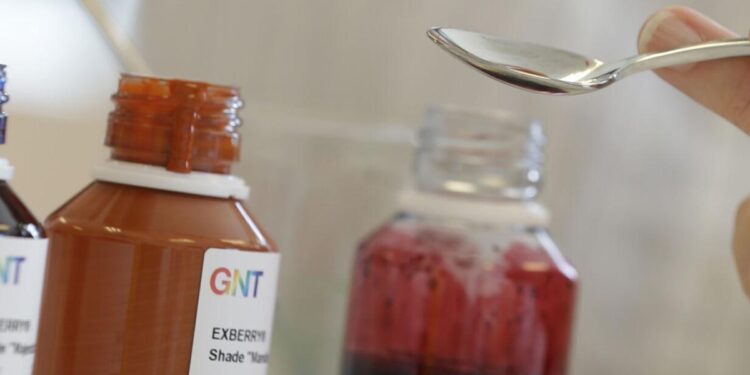CHARLESTON, W.Va. — Synthetic dyes used to make brightly colored cereals, drinks and candies are coming under scrutiny in states across the country, where lawmakers say the federal government has stalled in taking action despite evidence of harmful effects.
West Virginia, which ranks at the bottom in the U.S. for many health metrics, became the first to sign a sweeping statewide ban on seven such dyes this week. Lawmakers in more than 20 states — from deep red West Virginia to heavily Democratic California — are making a bipartisan push to restrict access to the dyes, which have been tied to neurobehavioral problems in some children and of which U.S. Health and Human Services Secretary Robert F. Kennedy Jr. has been an outspoken critic.
“We should not be forced to police our own foods,” said Republican Sen. Laura Wakim Chapman, who heads the Senate’s health committee and told lawmakers the vote might be the most important of their political careers. “No more toxic colors, no more poisoning ourselves and our children. No more unnecessary risks. Our health is not for sale.”
In signing the bill, Republican Gov. Patrick Morrisey referenced Kennedy’s slogan in saying, “There’s no better place to lead the Make America Healthy Again mission.”
The prohibition on certain preservatives and red, blue, green and yellow dyes takes effect for school food in August, and across the state in 2028. It follows narrower bills approved in California last year and Virginia last week that would ban six artificial dyes from being served in public schools beginning in 2027.
Why do lawmakers want to see the dyes die?
Thirty-six color additives are approved by the Federal Drug Administration for use in food and drinks in the U.S. Nine petroleum-based chemical dyes, including Red 3, have been allowed in U.S. food.
Public health advocates have been lobbying for state and federal action for years, pointing to research that links food dyes and other chemical additives to health risks, including exacerbating symptoms of attention-deficit/hyperactivity disorder in some children and animal research linking certain additives to cancers.
The European Union and some countries, including Australia and Japan, have banned or restricted the use of certain food dyes because of potential health risks.
In October, dozens of protesters outside the Michigan headquarters of WK Kellogg Co. demanded that the company remove artificial dyes from cereals such as Apple Jacks and Froot Loops. Kellogg announced that it would remove artificial colors and ingredients from its U.S. products by 2018, but never did so, despite making the change in other countries, such as Canada, where Froot Loops are colored with concentrated carrot juice, watermelon juice and blueberry juice.
The U.S. Food and Drug Administration banned Red 3 from the nation’s food supply in January, setting a 2027 deadline for manufacturers to eliminate it from their products. Makers of ingested drugs like cough syrups have until January 2028.
Want to reach a local audience and grow your business?
Our website is the perfect platform to connect with engaged readers in your local area.
Whether you're looking for banner ads, sponsored content, or custom promotions, we can tailor a package to meet your needs.
Contact us today to learn more about advertising opportunities!
CONTACT US NOW



